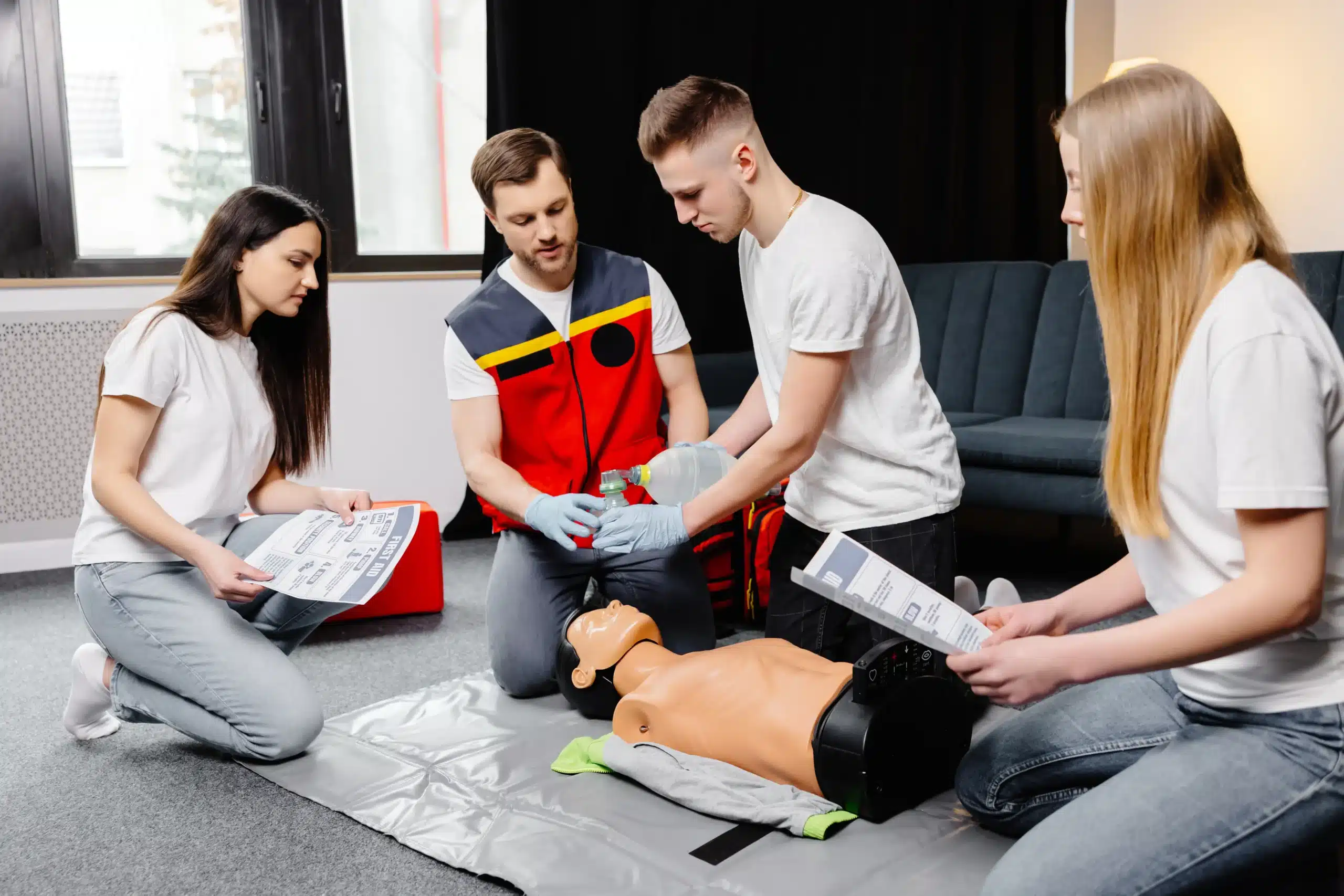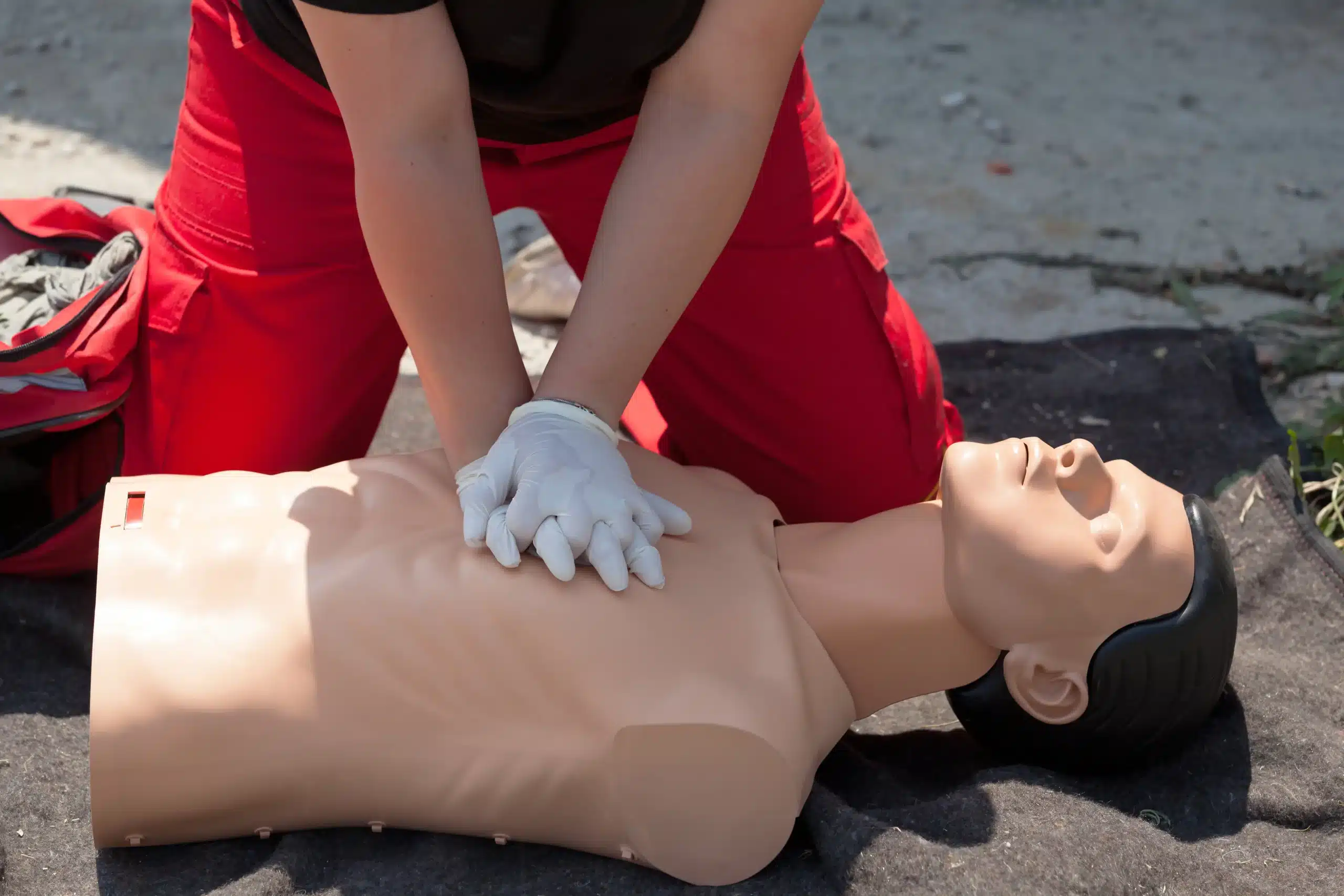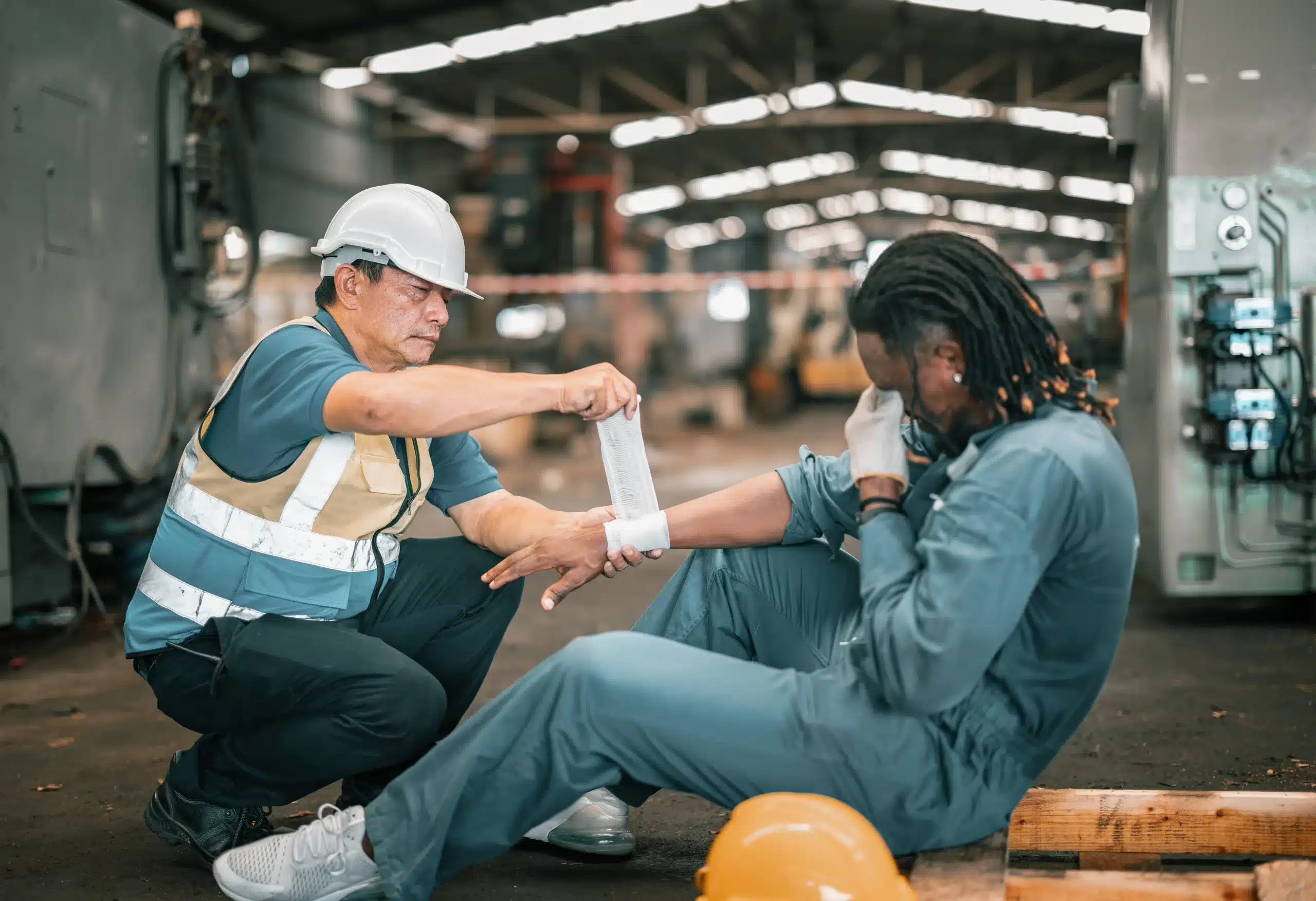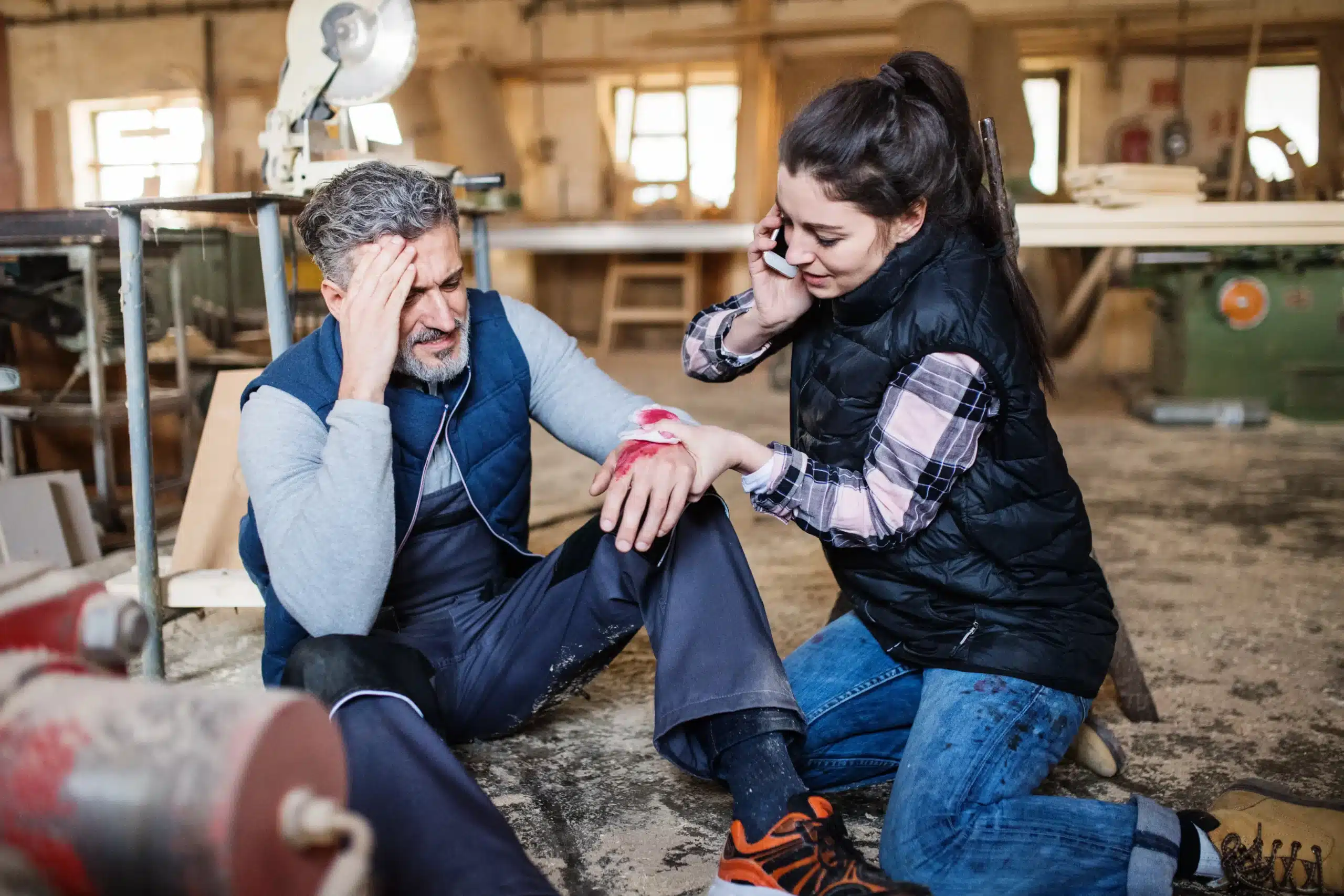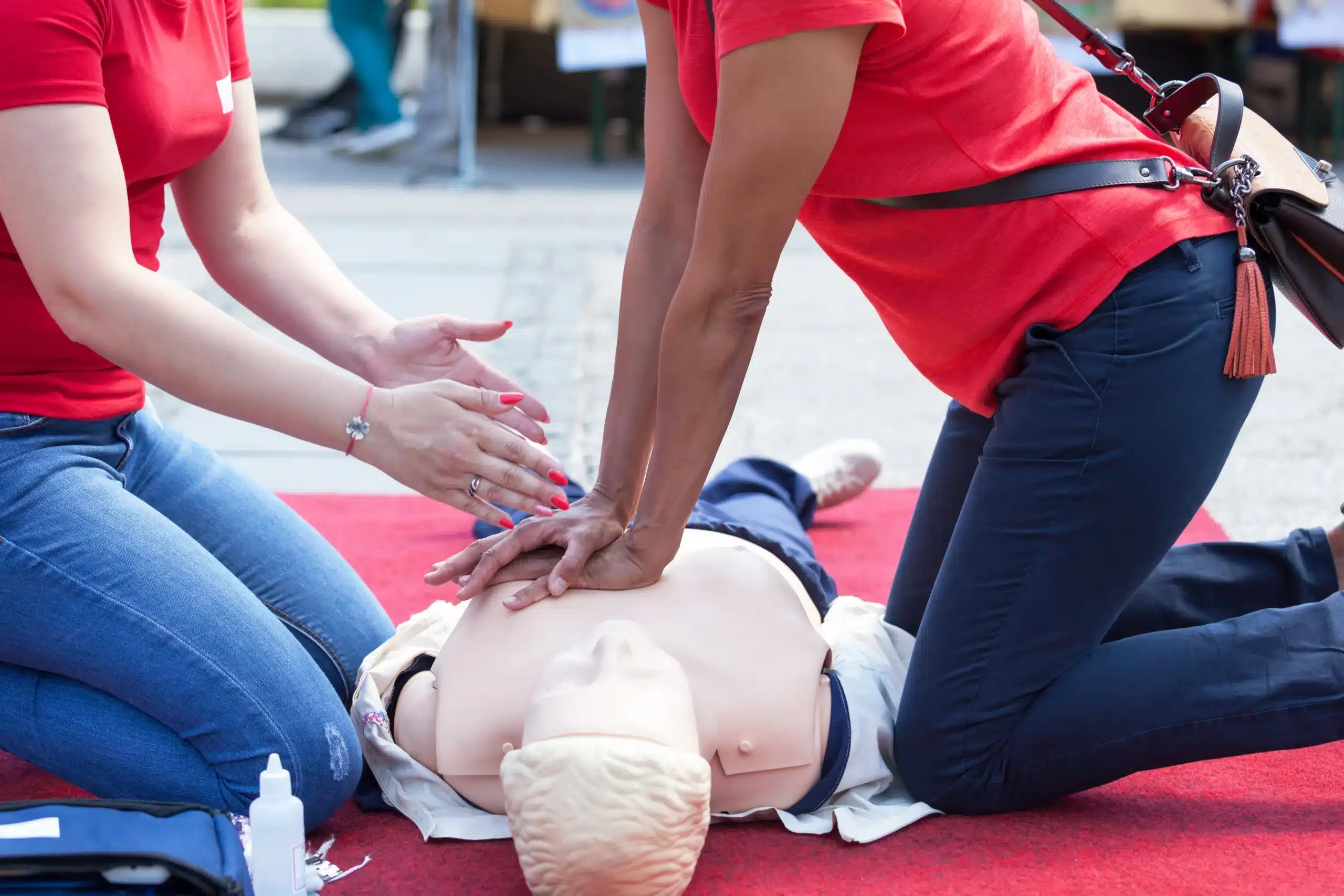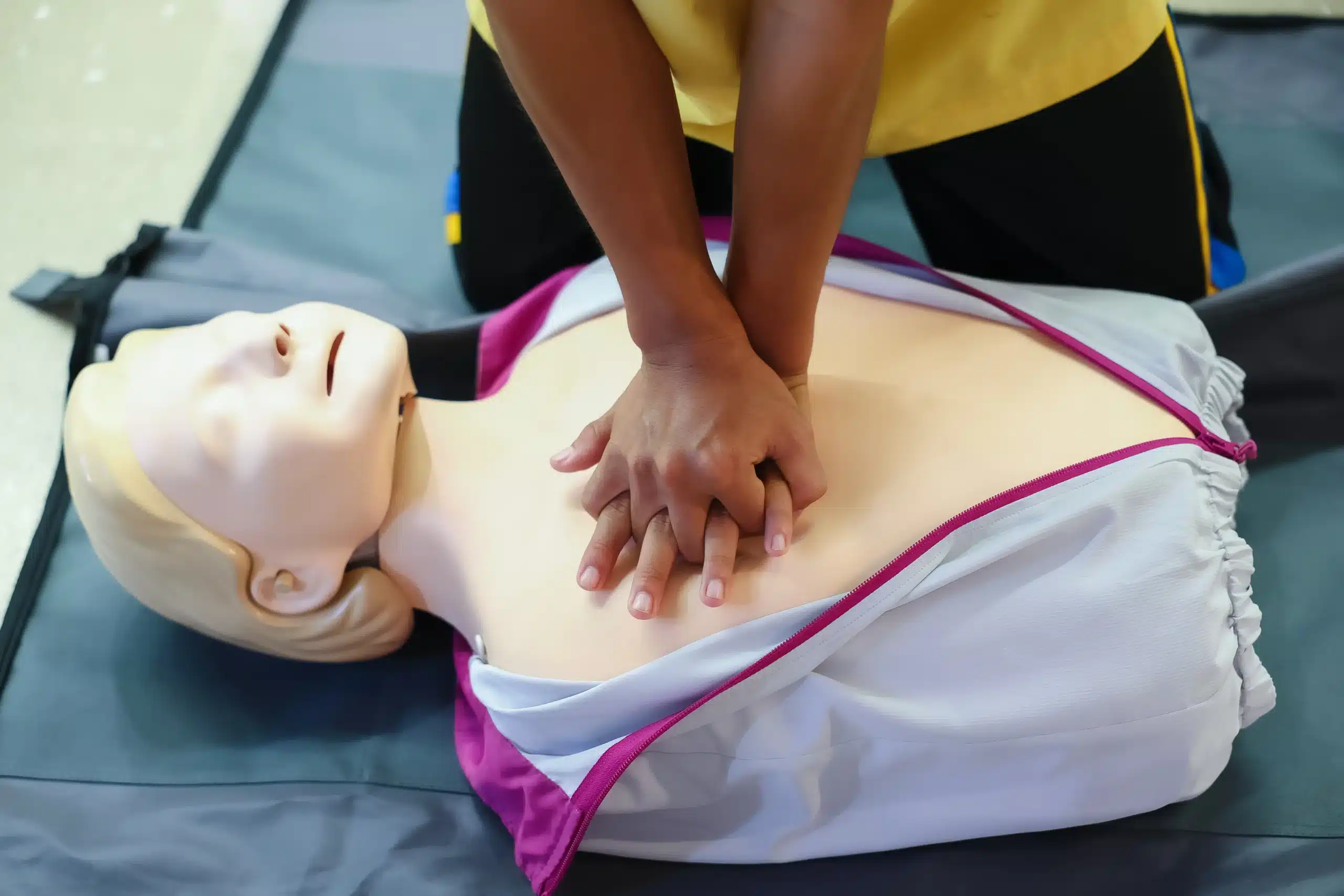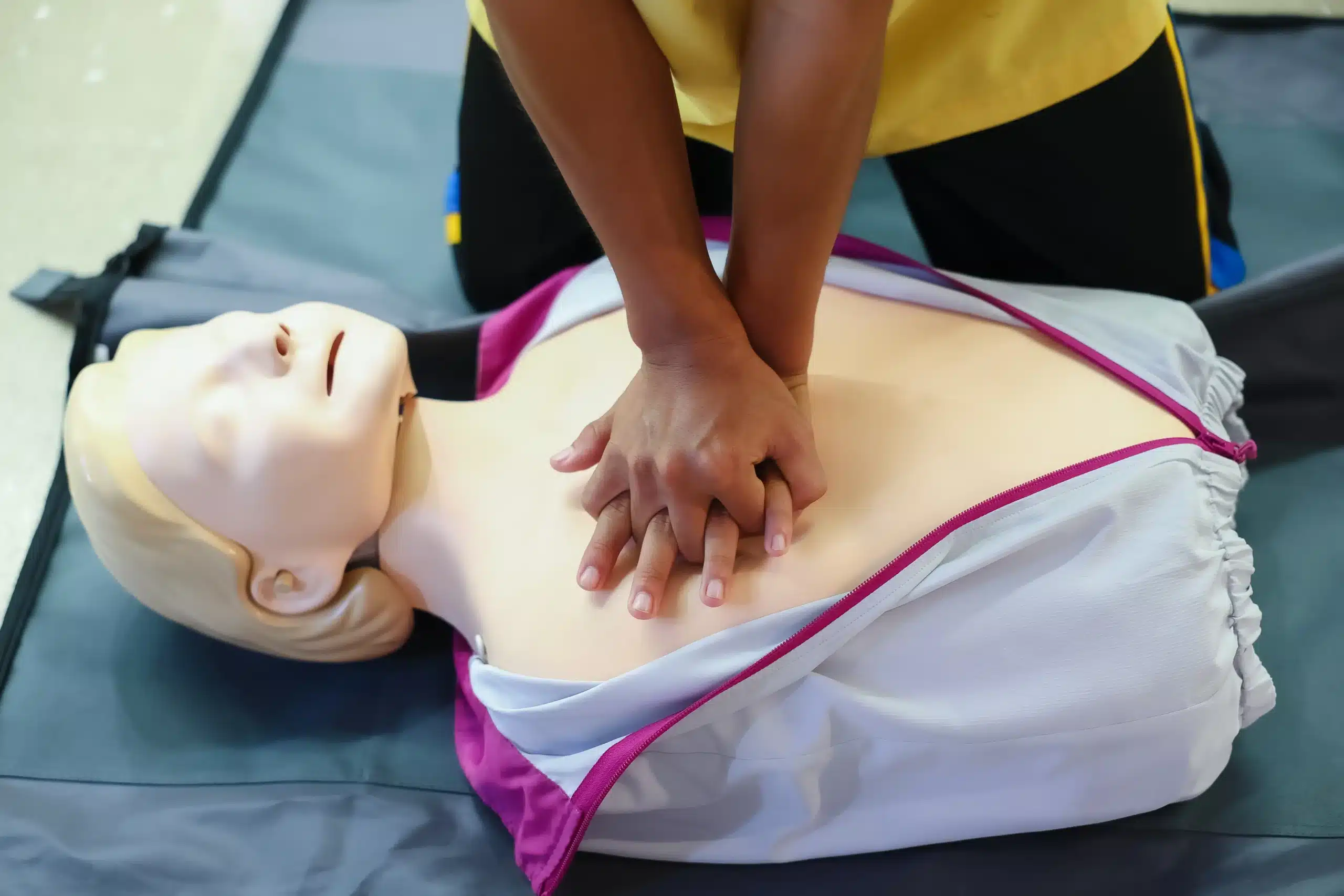CPR training is more than just a certification—it’s a life-saving skill that empowers you to act in emergencies. This guide explores the importance of CPR training in San Jose and provides a clear roadmap for finding the right course for you. We’ll cover various aspects of CPR training, including different course types (BLS, ACLS, PALS, and First Aid), what each course entails, and where to find them in San Jose. We’ll also discuss factors to consider when choosing a provider, such as hands-on practice, instructor experience, and flexible scheduling. Plus, we’ll delve into CPR training costs in San Jose, available discounts, and the importance of maintaining your certification. Whether you’re a healthcare professional or a member of the general public, this guide will help you confidently choose the best CPR training in San Jose.
Key Takeaways
- CPR skills empower you in emergencies: Equipping yourself with CPR training builds confidence and prepares you to assist family, friends, or even strangers during a medical crisis.
- Find the right CPR course in San Jose: Explore the various CPR training options available, considering factors like your profession, learning style, and schedule to find the perfect fit.
- Stay current with your CPR certification: Maintain your life-saving skills by renewing your certification regularly and exploring continuing education opportunities to stay informed about the latest advancements in CPR.
Why CPR Training Matters: Life-Saving Skills for San Jose Residents
CPR training empowers you with the skills to respond effectively during emergencies. It’s about more than just certifications—it’s about equipping yourself to potentially save a life. Cardiac arrest can happen anytime, anywhere. Having the training to step in and provide immediate assistance can dramatically increase someone’s chances of survival, especially before professional help arrives. CPR certification courses teach you the essential techniques of chest compressions, rescue breaths, and how to use an AED. These skills are invaluable in those critical first few minutes.
For San Jose residents, numerous CPR training options make it accessible to everyone. Whether you’re a healthcare professional needing to maintain your RQI, a parent wanting to be prepared, or simply someone who wants to make a difference, there’s a course out there for you. From basic CPR training to more advanced certifications like ACLS and PALS, you can find a program that fits your needs and schedule. Even if you’ve taken a CPR course before, staying up-to-date with the latest guidelines through refresher courses is crucial for reinforcing your skills and maintaining your confidence.
Having more trained individuals in San Jose directly impacts our community’s safety and well-being. It creates a network of people ready to assist in medical emergencies, increasing the likelihood of positive outcomes. Learning CPR isn’t just about acquiring a skill; it’s about becoming a valuable resource for your neighbors, friends, and family. It’s about being prepared to make a real difference when it matters most.
Find the Best CPR Training in San Jose
Finding the right CPR training in San Jose depends on your needs. Here’s a rundown of training providers in the area:
Safety Training Seminars
Safety Training Seminars, a woman-owned AHA Training Center, offers various courses, including BLS, ACLS, PALS, CPR, and First Aid. They also offer the convenient RQI program for healthcare professionals needing BLS renewal, plus renewal courses for other certifications. With a focus on customer service and a low price guarantee, they make quality training accessible. Check their course calendar for classes in San Jose (Willow Glen), Santa Clara, and Sunnyvale. They also offer specialized courses like EMSA Health, Safety, and Lead Poisoning for California childcare providers.
American Red Cross
The American Red Cross provides CPR and First Aid training in San Jose, with in-person classes and blended learning (online and in-person instruction). Their pediatric first aid and CPR training is helpful for parents, caregivers, and those working with children.
American Heart Association
The American Heart Association sets the standards for CPR training. Look for AHA-certified training centers, like Safety Training Seminars, to ensure you receive high-quality instruction. This certification is often required for healthcare professionals and many other jobs.
Emergency and Health Training Center
The Emergency and Health Training Center provides AHA-certified courses in San Jose, including BLS, ACLS, PALS, and First Aid. They’re a good option for comprehensive training.
San Jose Fire Department
The San Jose Fire Department is a vital resource for community health and safety. While they don’t typically offer regular CPR certification courses, they may have special events or resources for CPR education. Check their website or contact them for more information.
CPR Training Courses: What They Cover
Choosing the right CPR course is important, so let’s break down some popular options. Whether you’re a healthcare provider or simply want to learn CPR for your own knowledge, there’s a course designed for you.
Basic Life Support (BLS)
The American Heart Association’s BLS certification is for healthcare professionals like doctors, nurses, paramedics, and other medical personnel. It covers core life-saving skills for adult, child, and infant patients, including CPR, AED use, and how to help someone who is choking. BLS also emphasizes teamwork and high-performance resuscitation techniques. You can find BLS courses in San Jose through Safety Training Seminars.
Advanced Cardiac Life Support (ACLS)
ACLS builds on the foundation of BLS, focusing on advanced cardiovascular care. This course is designed for healthcare providers who manage cardiopulmonary arrest or other cardiovascular emergencies. It covers topics like airway management, pharmacology, and effective team dynamics during resuscitation.
Pediatric Advanced Life Support (PALS)
PALS is for healthcare providers who treat infants and children. The course covers pediatric assessment, resuscitation, and life-saving interventions for respiratory and cardiac emergencies. Like ACLS, PALS emphasizes team-based resuscitation and advanced life support techniques.
Heartsaver CPR/AED
Heartsaver courses are for anyone who wants to learn CPR and AED use, but isn’t a healthcare professional. This includes teachers, coaches, childcare providers, and community members. Heartsaver CPR/AED training teaches essential life-saving skills for adults, children, and infants.
First Aid Combination Courses
Many providers offer combination courses that pair CPR training with first aid certification. These courses teach you how to respond to a wide range of medical emergencies, from cuts and burns to fractures and allergic reactions. Adding first aid training to your CPR certification makes you even more prepared to handle emergencies. Safety Training Seminars offers a combined course specifically for California childcare providers covering health, safety, and lead poisoning.
What Happens During CPR Training?
CPR training equips you with the skills to respond confidently during cardiac emergencies. Whether you’re a healthcare professional or want to be prepared for any situation, understanding what to expect can make the process less intimidating.
Course Formats: In-Person, Online, and Blended Options
CPR training comes in several formats to fit your schedule and learning style. In-person classes at Safety Training Seminars offer hands-on learning and direct interaction with instructors. For those who prefer online learning, some providers offer a portion of the course through online modules, often combined with in-person skills sessions for a blended learning experience. This flexibility makes CPR training accessible to almost everyone in San Jose, Santa Clara, and Sunnyvale.
Essential Skills and Techniques
Regardless of the format, CPR training covers a core set of skills:
Perform Chest Compressions
You’ll learn the proper depth and rate for chest compressions, practicing on mannequins to develop the muscle memory and coordination needed to perform CPR effectively. This hands-on practice is essential for building confidence and ensuring you can deliver effective compressions during a real emergency.
Give Rescue Breaths
Rescue breaths are another critical component of CPR. Training covers the correct technique for delivering rescue breaths, ensuring proper airflow to the victim.
Use an AED
Automated External Defibrillators (AEDs) are life-saving devices found in many public places. CPR training often includes instruction on how to use an AED, which can significantly increase the chances of survival for someone experiencing cardiac arrest. For healthcare providers, the American Heart Association BLS course at Safety Training Seminars covers AED use.
Clear Choking
Knowing how to respond to a choking emergency can save a life. CPR training typically covers techniques for clearing obstructed airways in both adults and children. You can find more information about these techniques in our First Aid training guide.
Recognize Cardiac Arrest
Recognizing the signs of cardiac arrest is the first step in providing effective assistance. You’ll learn how to identify the symptoms and quickly assess the situation.
Practice and Real-Life Scenarios
CPR training goes beyond the basics, often incorporating practice scenarios and simulations. This helps you apply your skills in a controlled environment, preparing you to react calmly and efficiently under pressure.
Get Certified
Upon completion of your CPR training, you’ll receive certification, typically valid for two years. This certification demonstrates your proficiency in CPR and is often a requirement for certain jobs or volunteer positions. Safety Training Seminars provides AHA certifications, ensuring your training meets nationally recognized standards.
CPR Training Costs in San Jose
CPR training is an investment in life-saving skills, and thankfully, there are options in San Jose to fit every budget. Understanding the factors that influence cost can help you find the right course without overspending.
Course Prices
CPR training costs in San Jose vary based on the type of course and the certification level. Basic CPR and First Aid classes typically start at a lower price point than advanced certifications like ACLS or PALS. You’ll find a range of prices, so comparing options is always smart. As noted in our guide to CPR courses in San Jose, finding the right course type and format—from basic community CPR to professional certifications—is key.
Discounts and Promotions
Many training providers offer discounts for groups, students, or returning customers. Look for seasonal promotions or special offers, which can make quality training even more affordable. Prioritize providers who emphasize hands-on training and offer these valuable discounts, as we recommend in our CPR guide.
Safety Training Seminars’ Low Price Guarantee
Safety Training Seminars is committed to providing high-quality CPR training at competitive prices. We offer a low price guarantee on our AHA-certified courses, including CPR, BLS, ACLS, PALS, First Aid, and EMSA certifications. This ensures you receive excellent training without breaking the bank.
Benefits of Certification
Earning your CPR certification provides more than just a credential; it equips you with the confidence and skills to respond effectively in emergencies. Whether for your job, personal life, or simply peace of mind, CPR training empowers you to make a difference. These skills are valuable at work, at home, and everywhere in between, as highlighted by AllCPR San Jose. Consider the immeasurable benefit of knowing you can potentially save a life—that goes beyond any price tag.
Choose the Right CPR Training
Finding the right CPR training in San Jose involves considering a few key factors to ensure the course aligns with your specific needs and learning style. This section helps you break down those factors so you can confidently choose a course.
Factors to Consider
CPR training is surprisingly adaptable to different needs. You can find everything from basic community CPR courses to advanced professional certifications in San Jose. Think about why you want CPR training. Are you looking to gain a life-saving skill for personal use? Or do you need it for your job? Your reason will guide you toward the right course level. Also, consider your preferred learning style. Do you thrive in a hands-on environment, or do you prefer the flexibility of online learning? Luckily, there are options for both. Check out this guide to CPR courses in San Jose for a comprehensive overview.
Healthcare Professional vs. General Public
Different CPR courses cater to different audiences. Healthcare providers, for example, require a more advanced level of training than the general public. Courses like BLS (Basic Life Support), ACLS (Advanced Cardiac Life Support), and PALS (Pediatric Advanced Life Support) are designed for healthcare professionals and cover a broader range of life-saving techniques. These courses often delve deeper into patient assessment, airway management, and the use of specialized equipment. If you’re a healthcare provider, make sure the course you choose meets the requirements of your profession and licensing board. If you’re not in healthcare, a basic CPR and First Aid course will equip you with the essential skills to respond to emergencies in your everyday life.
Address Common Concerns
It’s natural to have some questions or concerns when choosing a CPR course. Here are a few common ones addressed:
Scheduling
Juggling work, family, and other commitments can make it tough to find time for a CPR class. Look for training centers like Safety Training Seminars that offer flexible scheduling options, including weekday and weekend classes. Being able to choose a time and day that works for you makes it much easier to fit training into your busy schedule.
Instructors
The quality of instruction can significantly impact your learning experience. Seek out certified instructors with extensive experience in both teaching and real-world emergency situations. A good instructor will create a supportive learning environment where you feel comfortable asking questions and practicing your skills. They’ll also provide personalized feedback to help you improve.
Hands-On Practice
While online CPR training can be convenient for learning the basics, in-person classes offer invaluable hands-on practice. This is where you’ll develop the muscle memory and confidence to perform CPR effectively in a real emergency. Look for courses that emphasize hands-on training with realistic mannequins and equipment. For example, Safety Training Seminars prioritizes hands-on learning in their courses.
OSHA Compliance
If you need CPR training for your workplace, ensure the course you choose complies with OSHA (Occupational Safety and Health Administration) standards. OSHA sets guidelines for workplace safety, including CPR and First Aid training requirements for specific industries. Choosing an OSHA-compliant course ensures you meet all necessary regulations and provides a safe working environment for yourself and your colleagues. Safety Training Seminars offers OSHA-compliant courses specifically designed for California childcare providers.
Maintain Your CPR Certification
Once you’ve earned your CPR certification, keeping your skills sharp is essential. CPR guidelines and techniques can change, so staying up-to-date is crucial for providing effective care when it matters most. This section covers everything you need to know about renewing your certification, continuing your education, and staying informed about emerging trends in CPR.
Renew Your Certification
CPR certifications typically expire after two years. To maintain your credentials and ensure your skills are current, you’ll need to renew. Safety Training Seminars offers various renewal courses for certifications like BLS, ACLS, and PALS. Check their website for the latest schedule and find a class that fits your needs. Don’t let your certification lapse—stay prepared and confident in your abilities.
Continuing Education
Even if your certification isn’t up for renewal yet, continuing education in CPR and related fields is always beneficial. The American Red Cross provides CPR and First Aid training in San Jose, with options for in-person classes and blended learning that combines online coursework with hands-on practice. Staying active in your CPR education reinforces your skills and keeps you informed about best practices.
Emerging Trends
The field of CPR is constantly evolving. One notable advancement is the American Heart Association’s RQI (Resuscitation Quality Improvement) program. This program offers a modern and efficient way for healthcare professionals to maintain their BLS, ACLS, and PALS certifications through online learning and low-dose, high-frequency skills sessions. Staying informed about programs like RQI ensures you have access to the most effective and up-to-date training.
Additional Resources
When looking for CPR training or renewal courses, find providers that emphasize hands-on training and offer group discounts. Safety Training Seminars prioritizes hands-on learning, giving you the practical experience you need to build confidence and proficiency. Also, check if your employer or professional organization offers CPR training or resources. These opportunities can make staying certified more convenient and affordable.
Related Articles
- Why CPR is Crucial in Saving Lives
- CPR Classes in San Jose: Your Complete Guide – San Jose CPR Classes
- CPR Training in Sunnyvale: Your Certification Guide – San Jose CPR Classes
- The Importance and Impact of Bystander CPR in San Jose, CA
- CPR Certification San Jose: Your Complete Guide – San Jose CPR Classes
Frequently Asked Questions
How do I choose the right CPR class for me in San Jose? Think about why you need CPR training. If it’s for your job, check if there are specific certifications required. If it’s for personal knowledge, a basic CPR/AED course might be perfect. Also, consider your schedule and whether you prefer in-person or blended learning (online and in-person). Safety Training Seminars offers various options to fit different needs.
What’s the difference between BLS, ACLS, and PALS? BLS (Basic Life Support) covers core CPR skills for everyone. ACLS (Advanced Cardiac Life Support) is for healthcare providers managing cardiac arrest and other cardiovascular emergencies. PALS (Pediatric Advanced Life Support) focuses on life-saving techniques for infants and children. If you’re a healthcare professional, ACLS and PALS build upon the foundation of BLS.
How much does CPR training cost in San Jose? Costs vary depending on the course type and provider. Basic CPR classes are generally less expensive than advanced certifications. Look for providers like Safety Training Seminars that offer a low price guarantee and discounts. Remember, the ability to potentially save a life is an invaluable investment.
What can I expect during a CPR training class? You’ll learn how to perform chest compressions, give rescue breaths, and use an AED. Most classes include hands-on practice with mannequins and real-life scenarios to build your confidence. You’ll also learn how to recognize the signs of cardiac arrest and how to respond to choking emergencies.
How do I maintain my CPR certification after completing a course? CPR certifications are typically valid for two years. You’ll need to take a renewal course to stay certified. Providers like Safety Training Seminars offer renewal courses for various certifications. Staying up-to-date with the latest guidelines and techniques ensures you’re always prepared to respond effectively.


